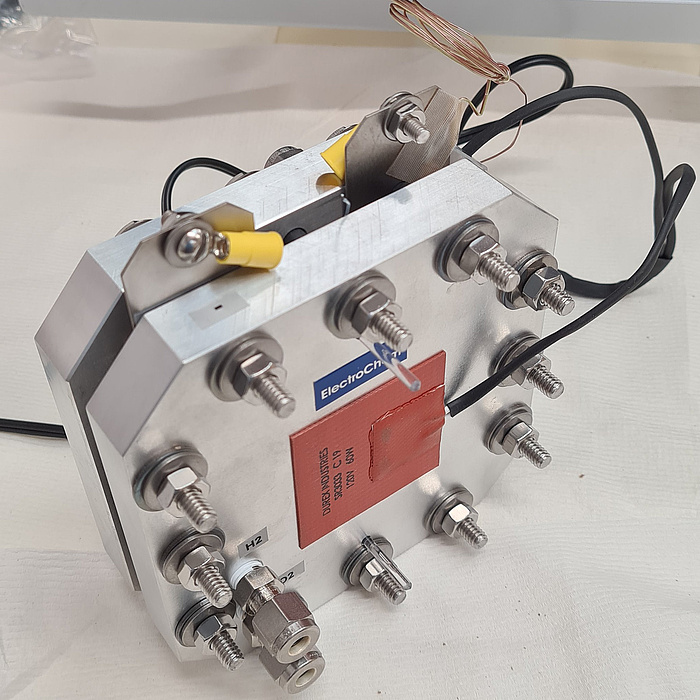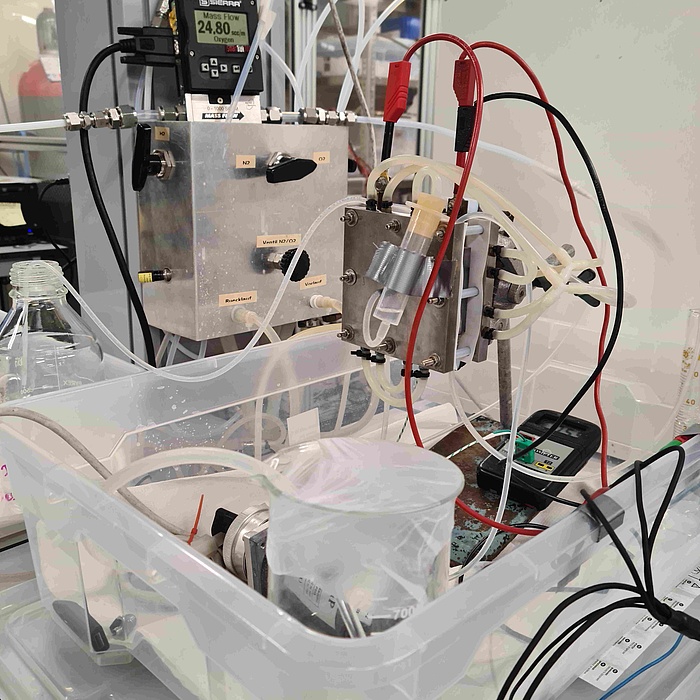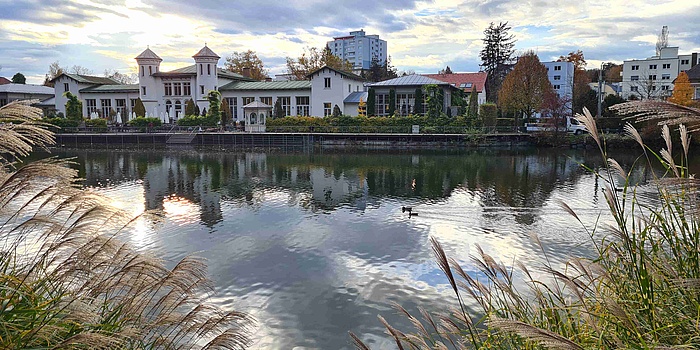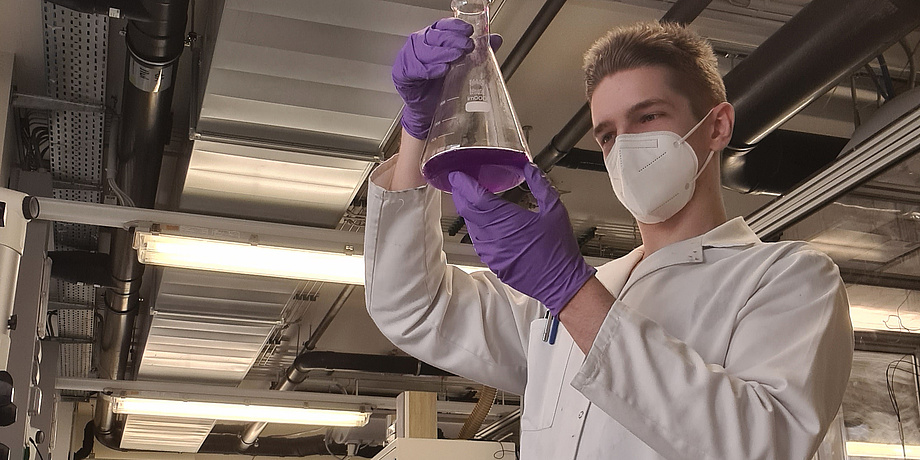In my final year of the Master's Programme in Chemical Engineering at the University of Ljubljana, Slovenia, I decided to do a five-month traineeship at the Institute of Chemical Engineering and Environmental Technology at Graz University of Technology (TU Graz). In November I started working in Professor Viktor Hacker's research group, which specializes in fuel cell material development, hydrogen production and purification, catalyst manufacturing and characterization. I have been interested in fuel cells for a long time and it was really nice to see how the technology works in real life and not just in theory as we learn it at the faculty.
Traineeship Abroad
How did I find out about the traineeship? My mentor and professor at the University of Ljubljana Boštjan Genorio introduced me to the project group which includes collaboration between Slovenian and Austrian institutions: the CEET Institute at TU Graz, the Faculty of Chemistry and Chemical Technology at the University of Ljubljana and the Faculty of Electrical Engineering and Computer Science at the University of Maribor. The project is focused on the development of new and improved membrane-electrode assemblies for direct ethanol fuel cells. As a part of my master’s thesis I performed some research for the project which included synthesis and characterization of graphene-based materials for use in ethanol fuel cells. In our annual project meeting I met TU Graz Professor Viktor Hacker and his colleagues, who offered me the opportunity to do a traineeship at the CEET institute.
Living in Graz as a student
Since Graz is one of Austria’s most famous student cities, I had no problems with finding suitable accommodation. There are many Facebook groups which offer flat-sharing accommodation. On the other hand, the International Office at TU Graz has a lot of good advice and a list of student accommodation in different parts of the city. I found this information very useful and I managed to get a room in a student dorm just 10 minutes walking distance from the CEET institute. This was my first time living in a student dorm, and I enjoyed the experience. Regarding the city itself, I was really fascinated by the public transport, especially the trams proved very useful to me. For any incoming students staying in Graz I really recommend buying or renting a bike, because it’s very practical to get around and explore the city. Due to the Covid pandemic, there were many restrictions on people hanging out and socializing. Therefore, we had to adapt to the situation and so we did some online meetings and game nights which were quite fun.
You want to study at the TU Graz? Which formalities have to be considered? What can I do in my free time? How do I find accommodation? Answers to these questions, practical tips and a lot of information about Austria in general and the city of Graz can be found on the website "Living in Graz for Students".
Working at the institute
On my first working day at the Institute of Chemical Engineering and Environmental Technology the coworkers welcomed me nicely, showed me around the laboratories and explained the research they are working on. To minimize the contact between people and risks of infections we worked separately in morning and afternoon teams. For me personally I appreciated that the laboratories stayed opened during the lockdown so I could perform the experiments. In my first two months of the traineeship I worked with Bernhard Marius on PEM-electrolysis cells, which use electrical energy to split water into hydrogen and oxygen. At the start we had many technical problems to overcome, such as gas leakage, heating management and MEA installation. However, after few weeks and some new solutions, we successfully completed the experiments. After that we also conducted several hydrogen production measurements with a segmented hydrogen low-temperature fuel.

PEM Electrolysis cell
In the last three months of the traineeship I worked with Sigrid Wolf and Michaela Roschger, who specialize in catalyst synthesis and ethanol fuel cells. This type of fuel cell uses chemical energy from ethanol to produce electricity. It is an alternative to hydrogen fuel cells, but each one has its own advantages and disadvantages. Since the main problem with ethanol fuel cells is the lack of active and efficient electrocatalysts, I also helped with some new and promising catalyst synthesis.

Ethanol fuel cell
Erasmus experience at TU Graz
Overall, I can say I really enjoyed my Erasmus experience in Graz, and I would definitely do it again. Apart from work at the laboratory I also did a lot of sightseeing around Graz. My favorite places were Schlossberg, Hilmteich and Schloss Eggenberg. For all the students who are deciding whether to go or not to go on Erasmus abroad, I certainly recommend it. I have made some great new friends, improved my German language skills and got a lot of working experience which will help me with my future career.

Hilmteich in Graz, Austria
If you think about studying abroad maybe you want to read more blog posts written by internationals at TU Graz. Switch to the TU Graz Incoming Stories or to the Student Ambassador Stories.
